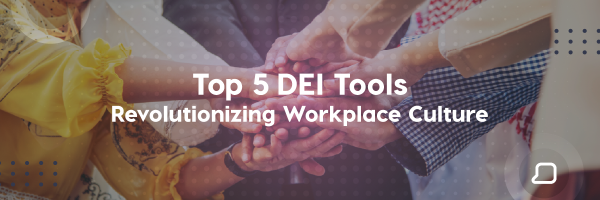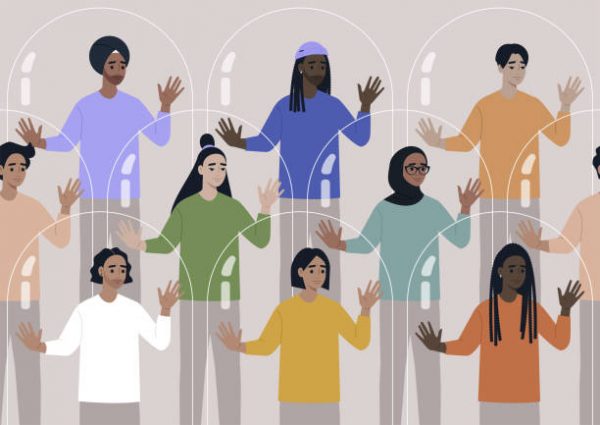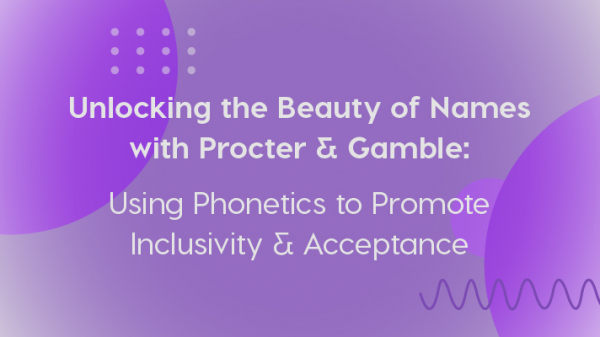
Diversity, equity, and inclusion remain a rallying call for businesses, demanding that we end the cycle of inequality and build a workspace where everyone feels they belong.
As we strive to shape a future where opportunities are accessible to all, we need to utilize every tool at our disposal. Amid these tools, a potent ally emerges—artificial intelligence (AI).
This remarkable technology holds the promise of not just enhancing but fundamentally reshaping our diversity and inclusion initiatives, making them more effective, equitable, and inclusive.
In this article, we will delve into how AI can be harnessed to promote diversity and inclusion, the transformative role it can play, and the ethical considerations that we must bear in mind.
| Key Takeaways |
|---|
|
Using AI To Promote Diverse and Inclusive Workplaces
Automation of time-consuming tasks is not the only benefit of AI. It can also be a transformative ally, allowing businesses to redefine traditional processes, unearth fresh perspectives, and enable equitable environments—ultimately resulting in efficient recruitment and retention practices. Here’s how:
AI-Driven Recruitment and Onboarding
One of the most significant ways to harness AI to promote diversity and inclusion is through recruitment. The initial stages of an employee’s journey set the tone for the rest of their tenure. By using AI, we can minimize bias and ensure a fair process for everyone.
For example, AI-powered recruitment tools help eliminate unconscious bias by removing identifying information such as names and gender from resumes. This ensures that candidates are evaluated based on their qualifications and not on their ethnicity, gender, or background.
Another way it can be utilized is to eliminate biased language from job postings. In fact, Kay Formanek, CEO and founder of diversity education company KAY Diversity, says businesses that use phrases like, “driven leader…someone ambitious…who’s going to deliver results” in their job ads won’t attract female applicants, even if they are qualified.
But why? Because these are typically seen as masculine job frames. Women are more responsive to language, such as “collaborative” and “empathetic.” AI can help identify biased or discriminatory terms in job descriptions to help attract a more diverse talent pool.
Once the right candidate has made it through the recruitment process, AI can facilitate onboarding by tailoring information based on an individual’s profile and suggesting relevant training, fostering an immediate sense of belonging and inclusivity from day one.
Fostering Inclusive Culture with AI
Beyond recruitment and onboarding, AI has the potential to foster an inclusive culture in the workplace by addressing communication, accessibility, and employee engagement.
For instance, deploying AI for sentiment analysis in company communications allows us to identify and rectify exclusionary language or behavior. The result will be more inclusive communication that takes into account the needs and concerns of a diverse workforce.
Speech recognition, text-to-speech, real-time transcription, and name pronunciation are also possible applications of AI to promote accessibility in the workplace. A tool like Namecoach, for instance, eliminates struggle with name pronunciation to prevent awkwardness and establish rapport quickly.
This way, companies ensure equal access to information and communication for all employees, regardless of ability or disability.
AI also helps employers recognize and retain talent from diverse backgrounds. AI-driven strategies make it easier to identify individuals at risk of leaving the company and provide personalized support to keep them engaged and motivated.
AI in Leadership Decisions and Succession Planning
While AI has the potential to transform recruitment and retention, the truth is business leaders are responsible for promoting equality, representation, and inclusivity in their organizations. And they can leverage AI to help them.
Performance assessments powered by AI are able to provide an unbiased view of an employee’s achievements and areas for growth. With these tools, vast amounts of data are analyzed to deliver fair and consistent evaluations, reducing the risk of subjective bias.
AI-enabled platforms also have the ability to provide real-time, anonymous feedback, so employees can feel more comfortable sharing their thoughts and ideas.
In succession planning, AI is a game-changer. It can objectively identify potential inclusive leaders from diverse backgrounds, relying on hard performance metrics and skills assessments rather than unconscious bias. This ensures a truly diverse leadership pipeline, cultivating an inclusive future for the organization.
To top it all off, AI’s data-driven insights guide leadership decisions. By harnessing AI’s analytical prowess, leaders can make decisions that truly reflect the diversity of their workforce and the community they serve.
Special Considerations for AI in the Workplace
As businesses leverage AI to enhance diversity and inclusion, there are vital considerations to bear in mind to ensure these tools are utilized ethically and responsibly. Here are some of the primary challenges and risks:
- Reinforcement of Bias: AI systems can inadvertently reflect and amplify societal biases, leading to potential discrimination and exclusion. Ensuring AI algorithms are inclusive and unbiased is vital to prevent this risk.
- Privacy Concerns: AI depends heavily on data to make informed decisions. This data can often be sensitive and personal, requiring organizations to collect and use data ethically and transparently, always with the consent of employees. Adequate protection of employee data from cyber threats and unauthorized access is also essential.
- Accountability and Transparency: As AI systems become more complex and autonomous, understanding the rationale behind decisions can be challenging. Businesses need to establish mechanisms ensuring AI systems are transparent and accountable for their decisions.
- Monitoring and Evaluation: Clear guidelines and protocols for using AI are essential. Regular monitoring and evaluation of AI systems’ effectiveness and their impact on diversity and inclusion are critical to ensuring they function as intended and contribute positively to the organization.
Leverage AI to Create a Diverse and Inclusive Workplace
As we move towards a more data-driven and technology-oriented world, we need to utilize these tools to empower and support our workforce. Harnessing AI for diversity and inclusion is a complex journey, but it doesn’t have to be an overwhelming one.
With the right partner by your side, you can navigate this landscape with confidence and purpose. That’s where Namecoach comes in.
At Namecoach, we understand that each individual brings a unique story, perspective, and value to your organization. Our innovative tool is designed to honor this uniqueness.
We use a combination of AI and machine learning to help companies make a positive first impression and build lasting relationships by ensuring accurate name pronunciation—a subtle yet significant step towards creating an environment of respect and inclusivity.
It’s time to harness the power of AI to cultivate a truly inclusive workspace. Schedule a demo and start building stronger DEI initiatives.









